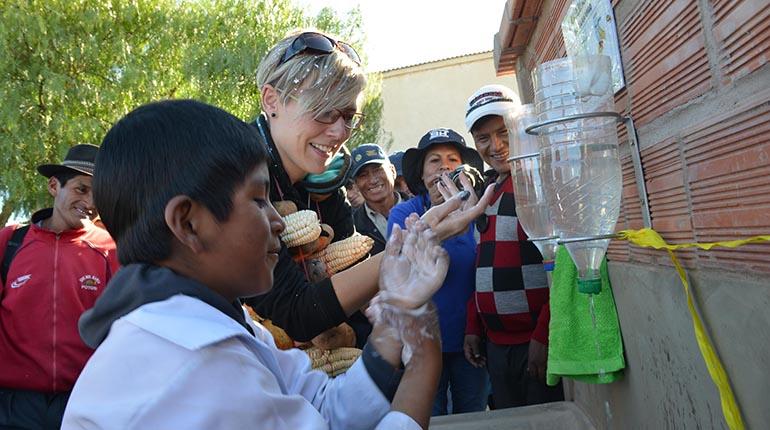FSH, 22 de marzo de 2018.-  World Water Day is celebrated annually every March 22 at the global level proposed during the United Nations Conference on Environment and Development in 1992 held in Rio de Janeiro. The General Assembly of the United Nations responded to this recommendation by designating March 22, 1993 as the first World Water Day.
World Water Day is celebrated annually every March 22 at the global level proposed during the United Nations Conference on Environment and Development in 1992 held in Rio de Janeiro. The General Assembly of the United Nations responded to this recommendation by designating March 22, 1993 as the first World Water Day.
In Bolivia, according to the Political Constitution of the State, water is a fundamental right for life, within the framework of the sovereignty of the people. The state promotes the use and access to water based on principles of solidarity, complementarity, reciprocity, equity, diversity and sustainability.
In this understanding Bolivians have the right to access water, because it is a vital element for the lives of people, animals and plants. Just as we have rights we also have obligations as citizens, we have the responsibility to take care of the water by making efficient use of this finite resource.
Did you know that our planet is made up of three thirds of water and one third of land, which means that water covers about 70% of the planet’s surface, its distribution on the planet: salt water 97%, water frozen 2.5%, fresh water 0.5%. That is to say that only 0.5% of water is available for human consumption, which is found in rivers and lakes, if we put all the water in the world in a bucket, only one spoon would be water available for human consumption.
Faced with this reflection, the Sumaj Huasi Foundation “For healthy housing” has been disseminating alternative technologies in water, sanitation and the environment under the concept of Healthy Housing.
The non-governmental organization has executed water, sanitation and environmental projects in peri-urban areas in various departments of the country applying alternative technologies such as ecological sanitation with the aim of contributing to improving the quality of life of low-income families, based on criteria of equity and social inclusion in the framework of the objectives defined in the National Development Plan of the Government and the Ministry of Environment and Water.
The ecological sanitation technology does not require water for its operation in this way it is practiced the rational use of water, it allows the separation of solid and liquid waste for its treatment, from it organic fertilizers are obtained that are suitable for crops of food and reforestation. From the waste treatment of the ecological toilets.
For his part, the Executive Director of the Sumaj Huasi Foundation, Raul Silveti, has stated that the principles of Ecological Sanitation constitute a measure of adaptation to climate change, promotes the rational use of water, preserves the environment and allows the generation of organic fertilizers to contribute to the food security of the population.

Leave a Reply
You must be logged in to post a comment.